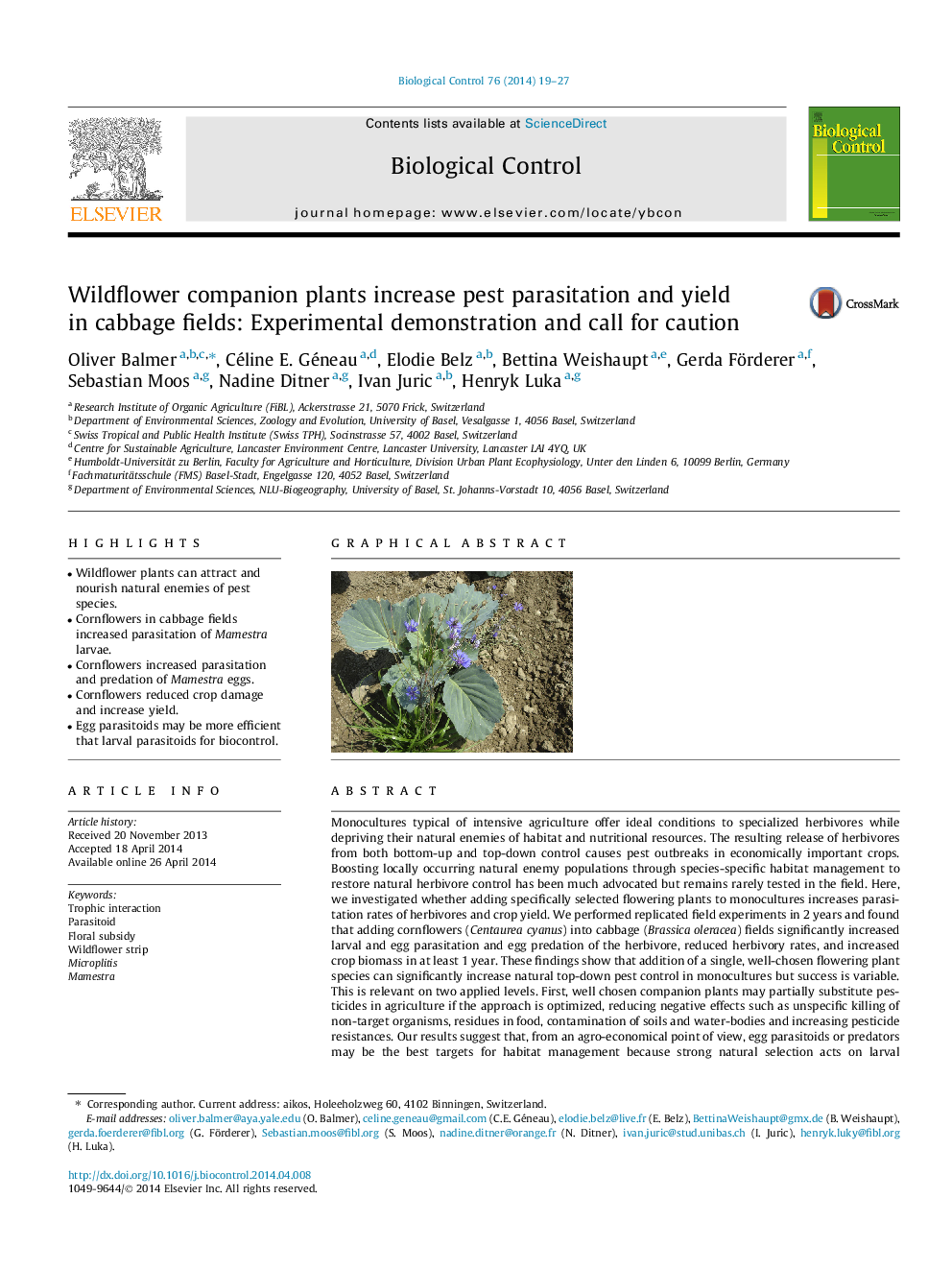| کد مقاله | کد نشریه | سال انتشار | مقاله انگلیسی | نسخه تمام متن |
|---|---|---|---|---|
| 4503879 | 1624258 | 2014 | 9 صفحه PDF | دانلود رایگان |
• Wildflower plants can attract and nourish natural enemies of pest species.
• Cornflowers in cabbage fields increased parasitation of Mamestra larvae.
• Cornflowers increased parasitation and predation of Mamestra eggs.
• Cornflowers reduced crop damage and increase yield.
• Egg parasitoids may be more efficient that larval parasitoids for biocontrol.
Monocultures typical of intensive agriculture offer ideal conditions to specialized herbivores while depriving their natural enemies of habitat and nutritional resources. The resulting release of herbivores from both bottom-up and top-down control causes pest outbreaks in economically important crops. Boosting locally occurring natural enemy populations through species-specific habitat management to restore natural herbivore control has been much advocated but remains rarely tested in the field. Here, we investigated whether adding specifically selected flowering plants to monocultures increases parasitation rates of herbivores and crop yield. We performed replicated field experiments in 2 years and found that adding cornflowers (Centaurea cyanus) into cabbage (Brassica oleracea) fields significantly increased larval and egg parasitation and egg predation of the herbivore, reduced herbivory rates, and increased crop biomass in at least 1 year. These findings show that addition of a single, well-chosen flowering plant species can significantly increase natural top-down pest control in monocultures but success is variable. This is relevant on two applied levels. First, well chosen companion plants may partially substitute pesticides in agriculture if the approach is optimized, reducing negative effects such as unspecific killing of non-target organisms, residues in food, contamination of soils and water-bodies and increasing pesticide resistances. Our results suggest that, from an agro-economical point of view, egg parasitoids or predators may be the best targets for habitat management because strong natural selection acts on larval parasitoids to keep their hosts alive for their own development. Second, the addition of non-crop vegetation to monocultures benefits biodiversity conservation directly through resource diversification and indirectly through the reduction of pesticide application that increased natural control makes possible.
Figure optionsDownload as PowerPoint slide
Journal: Biological Control - Volume 76, September 2014, Pages 19–27
